2, February 2024
Nigerian traditional monarch shot dead and wife kidnapped 0
Armed men have shot dead a traditional ruler, and kidnapped his wife plus one other person in south-western Nigeria, authorities say.
The attackers stormed the palace of Segun Aremu – a retired army general and monarch whose official title is the Olukoro of Koro – on Thursday night.
It is not clear who the gunmen were or whether they are demanding a ransom.
This latest killing and abduction comes days after campaigners demanded a state of emergency to deal with the issue.
Some 50 civil society groups want President Bola Tinubu to make that declaration, saying more than 1,800 people had been abducted since he took office last May.
But the true number of abductions during that time could be more than double that figure, at almost 4,000 people, says Nigerian risk consultancy SBM Intelligence.
No matter how desperate the circumstances, Nigerian law prohibits the payment of ransom money. However, many victims pay up because they do not trust authorities or their track record.
Condemning the killing of the Olukoro of Koro in Kwara state, as “reckless, shocking, and abominable”, Governor AbdulRahman AbdulRazaq has vowed that the authorities would catch those responsible.
Police say a manhunt is under way. They have also promised the local community they will set up a police outpost.
Nigeria is home to hundreds of traditional rulers, who have no constitutional role but are a respected presence in community life. They are often called upon to settle disputes between local people, and lead cultural activities.
Source: BBC
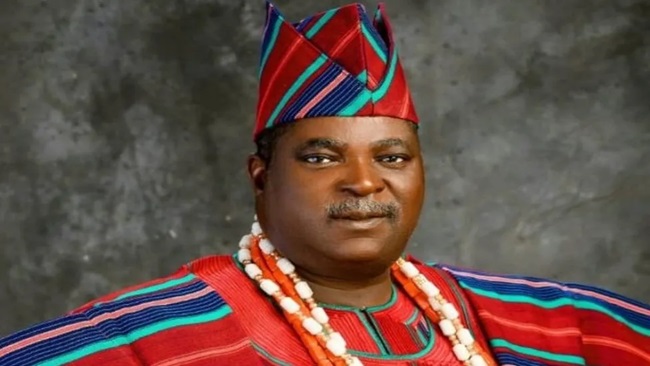
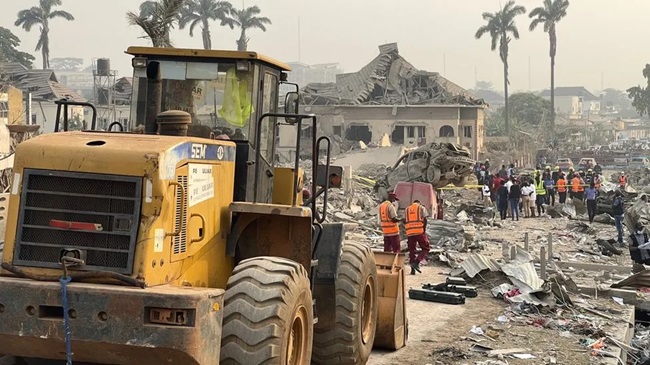
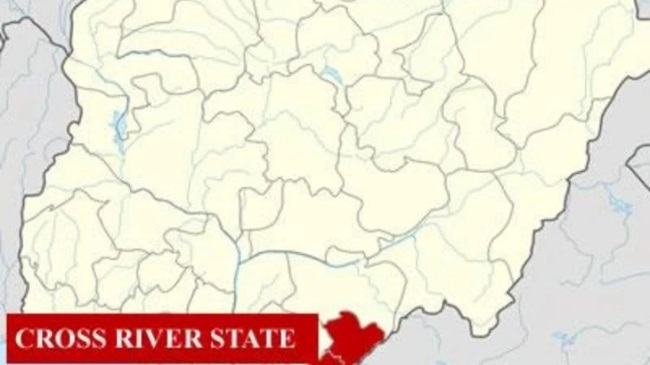
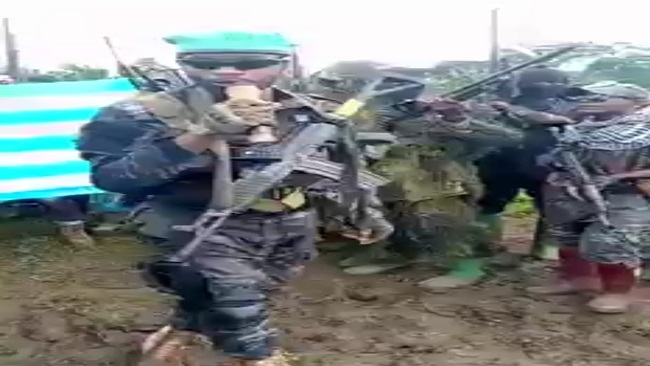
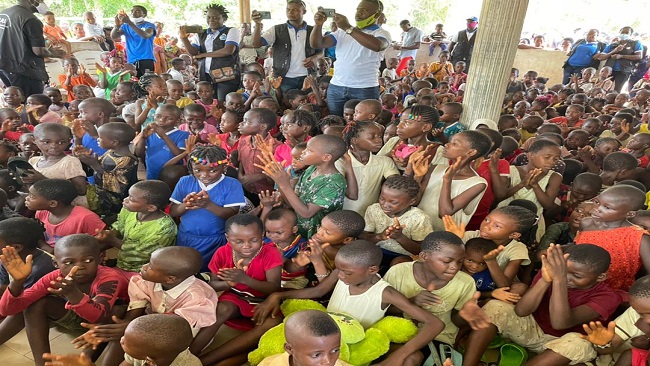


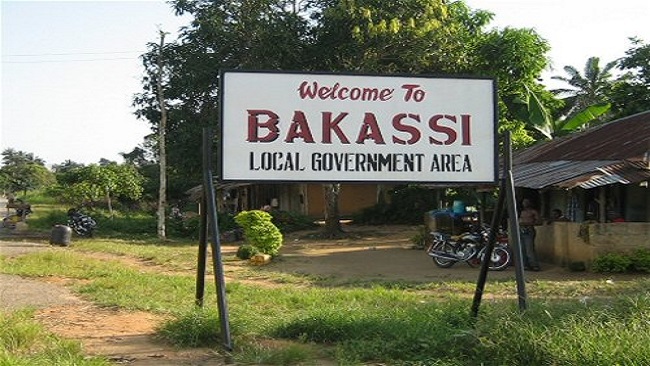
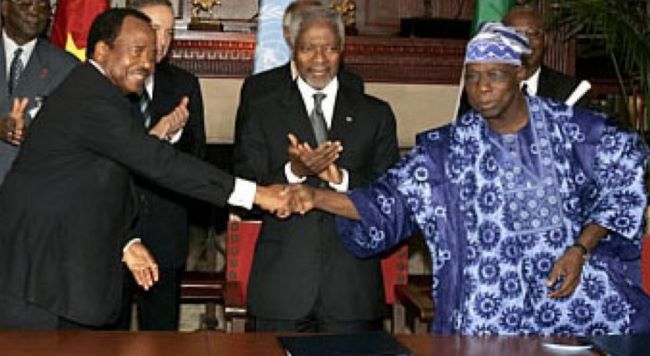


















28, February 2024
Nigeria’s security problems deepen as Ambazonia war spills across border 0
Over the past two decades, Nigeria has grappled with multiple and complex national security threats, each posing a significant challenge to its stability.
The nation finds itself fighting a violent militancy in the Niger Delta, conflicts between farmers and herders across multiple regions, terrorism and insurgency in the northeast, banditry in the northwest and secessionist campaigns by groups such as the Indigenous People of Biafra in the southeast.
Now a new layer of complexity has emerged in the form of the Ambazonian secessionist group from Cameroon. This group’s growing threat, most recently seen in the December 2023 violent invasion of the Nigerian borderline village of Belegete, adds to the strain on Nigeria’s national security capabilities.
As a scholar specializing in radicalization, violent extremism and counterterrorism in West and Central Africa, I believe the latest threat raises concerns about Nigeria’s strategic preparedness and ability to confront growing challenges.
How the country responds could have far-reaching consequences. Nigeria is Africa’s largest economy and most populous country. Since its independence in 1960, Nigeria has played a crucial role in regional stability and security. It remains an important diplomatic partner for the United States, which provides support to the Nigerian government in its efforts to combat extremism in the region.
Rise of a violent campaign
Ambazonian separatists, seeking independence from the Republic of Cameroon, are mounting a bloody civil war that stems from the Anglophone crisis, a protracted conflict rooted in the colonization of Cameroon by both the French and British governments.
Separatists from Camaroon’s two English-speaking regions declared independence from the French-speaking majority in 2017, and war has been raging between the separatists and Cameroon government forces ever since.
The Ambazonian secessionist movement, fueled by grievances that include the perceived dominance of Francophone Cameroonians, seeks to secede and establish an independent Federal Republic of Ambazonia.
Agitation over the past seven years has resulted in violence and widespread human rights violations.
Estimates by the U.N. Office for the Coordination of Humanitarian Affairs reveal that over 1.7 million people are in dire need of humanitarian assistance. Furthermore, the Anglophone crisis has resulted in over 6,000 deaths and displaced 765,000 people. About 70,000 of these refugees are in Nigeria, including a few in the village of Belegete.
The attack in Belegete in December left two dead, including the traditional leader, Chief Francis Ogweshi, and 20 others kidnapped.
Nigeria’s national security
As Cameroon’s clash with separatists worsens in southwestern Cameroon, the Ambazonian insurgents have moved into Nigeria.
The violent attack on the Belegete community, which followed earlier incursions in Nigeria such as the Manga village attack of November 2021, suggests a growing cross-border element to Cameroon’s Anglophone crisis.
As well as presenting a violation of territorial integrity, the incident also suggests collaboration with Nigeria’s own secessionist groups, with evidence of links between Ambazonian secessionists and the Indigenous People of Biafra.
Ambazonian insurgents are also engaged in drugs, arms and human trafficking and have brought that illegal trade across the border into Nigeria.
The incursion of Ambazonian activities has not only added to Nigeria’s security challenges. It has also intensified an ongoing humanitarian crisis in Nigeria’s border region, displacing thousands of people and straining the capacity of authorities to care for its internally displaced persons and refugees from neighboring countries, including Cameroon.
As of June 2023, Nigeria has an estimated 2.3 million internally displaced persons and 93,130 refugees and asylum seekers. The Belegete attack added to this by displacing the entire village of over 2,000 people, who took refuge in the neighboring village of Becheve.
Confronting the emerging threat
Nigeria’s capacity to confront the emerging Ambazonian threat is questionable, given multiple strategic, operational and tactical limitations.
The 2022 Afrobarometer working paper, which mapped states’ capacity to prepare for or respond to security threats, concludes that Nigeria – like several African states – “is widely seen to lack the necessary capacity for the physical and material security of its citizens or to command legitimacy.”
The Ambazonian separatist insurgency poses a threat not only to Cameroon and Nigeria but risks further degrading the security situation in West Africa.
The Nigerian government, undoubtedly, understands the magnitude of the security threats it faces, and its apparent limitations, and has called for assistance. President Bola Ahmed Tinubu, in a January 2024 letter to the outgoing French ambassador to Nigeria, Emmanuelle Blatmann, stressed the need for strengthened cooperation. “On regional security, we want you to remind Paris at every opportunity that it is necessary to upgrade our technical cooperation,” he wrote.
The United States has said it remains committed to assisting Nigeria. In January 2024, U.S. national security adviser Jake Sullivan met with his Nigerian counterpart, Nuhu Ribadu, and underscored the need for continuous bilateral security cooperation.
And while Nigeria has in recent years partnered with Cameroon to ensure regional stability, the latest attack suggests a need to increase strategic cooperation between the neighboring countries to stem the growing threat.
However, countering the Ambazonian separatists and other internal security threats will remain a challenge for the Nigerian government. With a vast population and territory, security personnel are already stretched thin.
Meanwhile, the existing security apparatus in the country is compromised. The military is beset by problems, including low morale and corruption, and the national police force is perceived as largely unprofessional and corrupt.
These issues hamper Nigeria’s capacity to respond, and they undermine any attempt to counter the spiraling security threats faced by Nigeria, including the Ambazonian separatists.
Culled from The Conversation